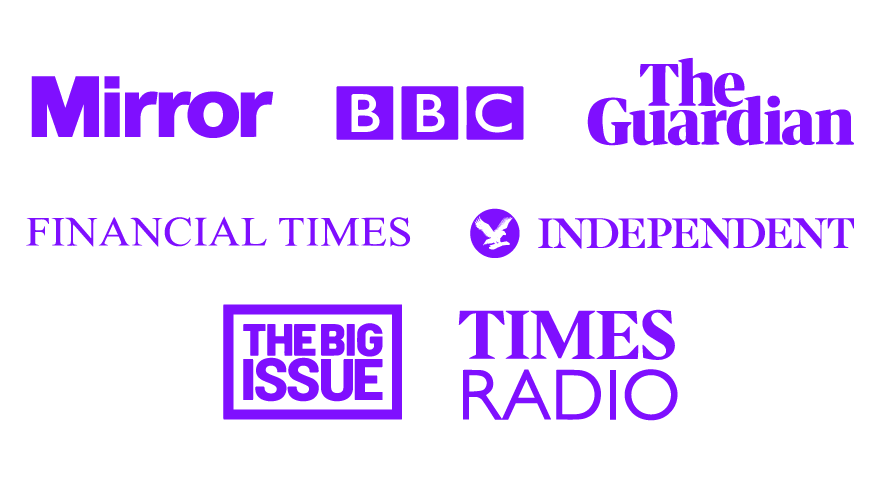The repeated claims that COVID19 has revealed social inequities in the UK is irritating. Like the ‘left behind_’ narrative it gives people permission to think (if not say), “whoops we didn’t see that before”. This is clearly not true! The pandemic and responses to it are exacerbating inequalities, speeding up the passage from poor lives to poor health and, for some, premature mortality. But social inequalities and their impacts – with their intersecting dimensions of class, race, ethnicity, sexuality, disability, age, etc - have always been on public display: in the dramatically contrasting neighbourhoods in cities; the makeshift “beds” for homeless people lining our streets; the Windrush scandal and the Grenfell Tower fire, the burgeoning food banks and now ubiquitous food collection boxes at supermarkets. They are present in schools, the NHS, housing agencies, job centres and other public services. They have never been _invisible just deliberately unseen.
Many people work to keep inequalities in the public eye – like the artist Banksy. And the UK research community has played its part. There is a continuous stream of high quality evidence on the causes and impacts of poverty/inequality and the effectiveness (or not) of policies/actions that aim to improve things. But this research raises significant ethical challenges. At a UNESCO meeting in 1980 Joseph Wresinski, founder of the ATD Fourth World Movement, criticised the scientific community for failing to generate knowledge “to inform, to explain and to lead people to action” against poverty. He went on to argue that , research on poverty would “remain lifeless as long as it failed to privilege the knowledge which the poor and excluded have from their first-hand experience of the twin realities of poverty and the surrounding world which imposes poverty on them”.
Things have improved. Many more studies explore people’s ‘lived experience’ of poverty and inequality and involve them directly in research. Indeed, since the pandemic there has been a noticeable increase in practical initiatives and research gathering stories from the Other COVID Front Line i.e. groups bearing the brunt of inequalities before COVID19 emerged. These developments have been accompanied by discussions about how data are to be collected in times of lockdown and physical distancing and some searching about the ethics of conducting this research. However, despite the progress, meaningful participation throughout the research process is still the exception. Direct benefits for the individuals, groups and communities targeted by research are also rare and paradoxically, as the volume of research grows, so too do the inequalities being studied.
So what does the research community need to do more adequately to address Wresinski’s “most fundamental struggle - to build knowledge to liberate people from poverty”. I think the radical ethics of reciprocity, embedded in standards developed by indigenous peoples can help. These codes make consent conditional upon research addressing priorities identified by people with lived experience and producing tangible positive impacts on their lives. They emphasise collective consent and involvement throughout the research process. They require absolute transparency about all aspects of the research, including resources and potential for benefit, respect for and understanding of people’s culture and history, the sharing of research skills and research roles with community members. For example, the San People in South Africa require studies to be governed by a protocol setting out the agreed reciprocal relationships.
I am not arguing for the simple transfer of these codes, but it would be possible to translate the underlying principles to all research on poverty and inequality. These codes seek to re-balance power towards those who lives are to be the focus of research. They shift the focus from the pursuit of individual ‘informed consent’ to participate in research designed by researchers to collective community/group involvement in all aspects of research addressing priorities that are identified by these communities/groups. Crucially, they also re-frame advocacy as an ethical imperative for all research and require researchers to commit to action to make a positive difference to the people whose lives they study.
Covid Realities: families on low incomes during the pandemic’ is an example of research informed by a more radical ethics of reciprocity as it seeks to give people living on low income a platform through which their voices can be heard. One challenge for it and similar ‘lived experience’ studies will be to establish rigorous processes that enable people to collectively share in the interpretative process and to collaborate in developing ways in which these voices can influence policy/action. Another challenge is for the principles of a radical ethics of reciprocity to be accepted as relevant to all research on poverty and inequality including quantitative approaches and not just by those involved in participatory qualitative research.
References
Powell, K M; Takayoshi, P (2003) Accepting Roles Created for Us: The Ethics of Reciprocity, College Composition and Communication; Vol. 54, No. 3, pp. 394-422
Pittaway, E; Bartolomei, L; Hugman, R. (2010) ‘Stop Stealing Our Stories’: The Ethics of Research with Vulnerable Groups Journal of Human Rights Practice, Vol 2, Issue 2, pp 229–251, https://doi.org/10.1093/jhuman/huq004
Castelano, M B (2014) Ethics of Aboriginal Research in Teays, W; Gordon, JS, Renteln, AD (eds) Global Bioethics and Human Rights: Contemporary Issues, Rowan & Littlefield, UK pp273-288


